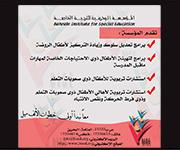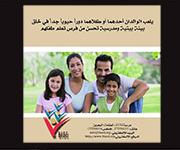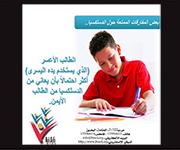Dyslexia Cards



|
|
By: Dale S. BrownHere are a dozen simple strategies to help your children keep the academic skills they learned during the school year. Support them as they read. Give them material that is motivating — and some of it should be easy. Help them enjoy books and feel pleasure — not pressure — from reading. The summer should be a relaxed time where their love of learning can flower. As a parent, you play a critical role in your child's education during the summer — especially if your child has dyslexia. Without your help, kids are more likely to forget what they learned last year. A recent study estimates that summer loss for all students equals about a month of academic learning. Most likely, children with learning disabilities need even more reinforcement. Help them remember what they learned in school. That way they can start next year caught up or ahead of the other students in their class. Bring out their natural love of learning. And encourage them to read for pleasure without the pressure they experience in the classroom. Here are some summer strategies to help your child with dyslexia remember what they learned in school and see that reading can be useful and enjoyable: - Give them material that motivates them to read, even though they might find it hard to do. Try comic books, directions for interesting projects, and mystery stories. Have them read information on possible activities as you plan your summer vacation. Let them decide what they want to read.
- Support them as they read. Read their book aloud to them, help them decode, and make it easy for them to get the meaning. Even if a question is asked again and again or if you feel irritated, act happy that they asked. Show them that reading is a way to find out what they need to know, or even to entertain themselves.
- Give them easy reading. Summer is supposed to be relaxed. Let them succeed and get absorbed in the book.
- When you read with them, make it your goal to enjoy the book together. You don't have to make them read perfectly! Avoid too much correction. In school next year, the teacher will help them improve their skills.
- Let younger children "pretend" to read. Read the story aloud together. Let them follow your voice. Have them look at the words as you point to them, even if they aren't actually reading. When they say the wrong word, say the word correctly and cheerfully while pointing to the word.
- Read aloud to them as you do daily chores, sightsee, or sit on the beach. Read an instruction manual with them as you try to fix something. While visiting a museum, read the interpretive materials. If you see the slightest sign they want to read aloud to you, let them!
- Model and teach persistence. When you are working on something that is hard, model the discipline and patience that you want them to show while learning to read. Teach them explicitly the value of working hard to do something challenging. Tell them inspirational stories about famous people — or members of your own family — who have overcome obstacles.
- Accommodate their dyslexia. For example, if they have to read aloud in public, have them memorize their passage ahead of time. Ask the teacher or camp counselor to request volunteers to read rather than pass the book from one person to another. If you give them a recipe for cooking (or any project involving written directions), be sure that it is at their reading level and that the print is large enough for them.
- Use technology. If you have a computer, equip it with software that reads aloud. SeeReading Software: Finding the Right Program. Let them load books into their electronic devices and listen to them at the same time as they read the printed book in their hands. Take a look at On the Go: What Consumer Devices Can do For You.
- Use recorded books. Use Learning Ally (formerly Recording for the Blind and Dyslexic) or audio books.
- Be a model of reading. Bring books to the beach and read them. If you are traveling, find a book for the whole family to read and discuss. If you are dyslexic, "read" your taped books on vacation, letting your child see you or give them their own tapes. Show and tell them how you overcome your own difficulties.
- Have reading matter conveniently available. You might carry small children's books and magazines with you and have them ready when you must wait in line for those crowded amusement park rides and popular sightseeing destinations.
The summer months are important to your child's academic development in two ways. First, they need to be reminded of what they learned during the school year so that they remember it when they return in the fall. Second, and perhaps more important, children with dyslexia can discover the joys of reading and other academic skills in the relaxed summer season. If nobody tells them they have to read to get good grades, they might just pick up a book and enjoy it. For more information: LD OnLine has more tips on how parents can help their children in this article, Summer Reading Tips for Parents. Learning Ally (formerly Recording for the Blind & Dyslexic) has lots of great audiobooks for the summer. Reading Rockets has many articles that can help you with summer reading! You know your child better than anyone. Choose the activities that they will enjoy. Be sure and accommodate their dyslexia as you follow these suggestions. These tips were written exclusively for LD OnLine by Dale S. Brown, Senior Manager, LD OnLine. She is a nationally recognized expert on learning disabilities who has written four books on the subject. She received the Ten Outstanding Young Americans Award for her work as an advocate. Brown, Dale (June 2007). Summer Reading Strategies for Children with Dyslexia. LD OnLine. |












